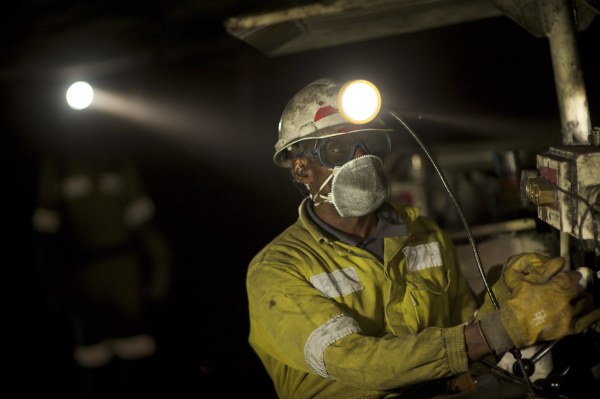- Recently released report Eskom Transformed: Achieving a Just Transition for South Africa offers an alternative look at the crises at Eskom and possible solutions.
- The report presents a view that is contrary to the mainstream consensus dominating the South African energy debate, and not just because it was drafted with input from the trade unions most involved with workers at Eskom, the National Union of Mineworkers (NUM) and the National Union of Metalworkers of South Africa (NUMSA).
The report reflects research by the Alternative Information and Development Centre (AIDC) in Cape Town, Trade Unions for Energy Democracy (TUED) in New York and the Transnational Institute (TNI) in Amsterdam, who together form part of the Eskom Research Reference Group.
This group believes electricity should be a public service and the electricity utility’s infrastructures should remain in public hands. The Eskom Transformed report includes an analysis of South Africa’s electricity sector, the need for a necessary energy transition and the possible role of a radically reformed public utility.
Changing the narrative
Before COVID-19 replaced the Eskom crises as the central issue facing South Africa, only the unions and their closest allies were consistent in their opposition to the proposed unbundling of the utility and the incursion of the independent power producers on the country’s energy scene.
A theory that gained traction in news circles was that this opposition reflected the desire of trade unions to protect coal sector jobs in a way that ignored economic, social and environmental problems that come about through the continued use of fossil fuels.
Similarly, union opposition to the IPP system has, in some quarters, been seen as opposition to renewable energy itself, and economy-wide decarbonation in general.
The report though negates these theories as it shows the unions not only support a move towards clean energy and decarbonisation but makes the case that unbundling Eskom and privatisation doesn’t achieve either goal.
It posits that unbundling the utility and essentially privatising the country’s energy sector would compromise the country’s energy sovereignty by making it dependent on technologies and supply chains almost invariably situated in Asia and Europe.
Unbundling the problem and presenting a different view
Meticulously the report unpacks the three misconceptions the researchers feel have distorted the energy transition discussion in South Africa:
- The cause of Eskom’s crises;
- The idea that the transition to renewable energy is driven by economics; and
- There are no major technical hurdles standing in the way of SA’s energy transition.
Then it identifies a to do list that the researchers believe could bring about a just transition to a sustainable and equitable energy system that should, in their view, be publically owned and controlled.
The report also recommends the demarketisation of Eskom and the dismantling of the IPP system. The researchers insist this radical suggestion is not a statement of opposition to decarbonisation.
“Our concern is that there will be no energy transition, no decarbonisation, based on the ‘energy for profit’ model. Another path – a public path – is possible,” say the researchers in their report introduction.
While the report agrees that the problems at Eskom are myriad and state capture has a lot to answer for, it also makes the case that corporatising the state utility is what started it all. It then argues that the cost of renewables only decreases because of policy intervention through state-owned entities.
“If it were not for government interventions that were explicitly designed to make profitable what would not otherwise be profitable, there would be no modern renewable energy industry to speak of in most, if not all, areas of the world. ‘Out of market’ protections like feed-in tariffs and PPAs, underwritten by governments, put wind and solar on the global map,” states the report.
It adds: “Governments, including the South African government, also gave wind and solar ‘priority of dispatch’ to grid systems that were built as a result of public investments, in much the same way as the motor vehicle industry has been sustained by national highway systems.
“Publicly owned development banks have also made a major contribution to financing renewables at favourable rates of interest. It is one of the ironies of the current debates on energy transition that these basic truths about public financing of renewables have been turned into a celebration of the private sector and its ‘leadership’.”
Essentially it also makes the case that the policy moves towards unbundling and privating Eskom run counter to international trends towards strengthening, modernising and democratising state-own enterprises.
Research into energy systems demonstrate that the public option may be the only way to decarbonise the sector and the market-driven approach that dominated from the 1970s to the 1990s cannot address the challenges of growing economic social inequality and the global climate emergency.
The report Eskom Transformed: Achieving a Just Energy Transition for South Africa is available online.
The report was researched by the Alternative Information and Development Centre (AIDC) in Cape Town, Trade Unions for Energy Democracy (TUED) in New York and the Transnational Institute (TNI) in Amsterdam, with support from the Friedrich-Ebert-Stiftung Foundation South Africa
Author: Theresa Smith
This article was originally published on ESI Africa and is republished with permission with minor editorial changes.















